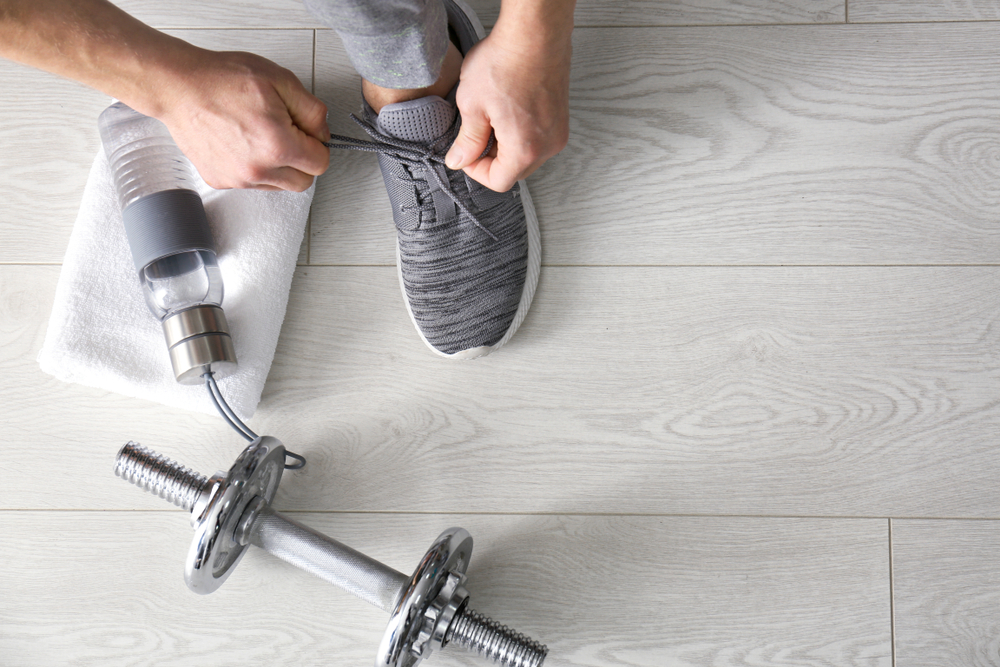In the 21st Century, exercise is (for many) one of the most important aspects of their day. We all strive to both feel good and look good; and for most people achieving the aforementioned goals requires eating healthy and exercising—especially as we age. In most metropolitan areas, gyms can be found in almost every neighborhood, making it hard for even the busiest of people to find an excuse for not having a membership.
In an attempt to aid people in their efforts of achieving fitness goals, there are a few devices that can be purchased that will track one’s progress, i.e. Apple Watches, Jawbones and Fitbits. By wearing such a device around your wrist, you can track a number things relevant to your health and fitness, including how many calories you are burning in a given day or how many miles you have walked. Work-out bracelets sync with your computer or smartphone, providing you with the ability to view your progress.
Exercising Against Relapse
In the field of addiction medicine, it is widely accepted that exercise is of the utmost importance—particularly for those in early recovery. Substance use disorder is often synonymous with a sedentary life; those abusing drugs and alcohol are typically not prioritizing exercise and eating healthy. It is not uncommon for people entering addiction treatment centers to be in poor physical condition—being overweight or underweight. Experts who work at substance use disorder facilities prioritize the treatment of both mind and body; there is a reason for a bifocal approach to recovery.
When someone is eating poorly and their body is out of shape, they typically feel bad physically. Feeling bad physically can wreak havoc on one’s emotional state. The mind and body being connected, it is crucial that both mechanisms are in sync. For those living with the disease of addiction, having a disjointed mind and body is not a luxury they can afford. Emotional well being is paramount to protecting against relapse. Stagnation can lead to depressive states, in turn increasing the chance of thinking that a drink or drug is good idea—even when you know that doing so will only make things worse.
After the detoxification process, counselors will encourage patients to work on improving one’s physical condition by exercising. For clients who are unable to engage in high impact activities, addiction specialists will urge them to take up yoga. Those who heed such recommendations are likely to be stronger physically and mentally at the time of discharge—potentially being more resilient to cravings and triggers—provided however that they continue working a program of recovery.
In the Moment Recovery
New research is being conducted to see if the use of Fitbits can help prevent relapse. The National Institutes of Health (NIH) will spend over $200,000 to provide smart devices to the participants of a study being conducted by researchers at at Butler Hospital in Rhode Island, The Washington Free Beacon reports. While the preliminary study will only include female participants, the findings could lead to the utilization of fitness trackers as a way to protect against relapse for everyone working a program of addiction recovery. The reason the study will include only females, is due to the fact that women with alcohol use disorder (AUD), by and large, report drinking to cope with negative emotions.
Relapse rates are very high in both men and women but significant gender differences emerge in the predictors of relapse,” the grant said. The NIH adds that the use of Fitbits will enable the participants to utilize the “in the moment” method to “cope with negative emotional states and alcohol craving during early recovery.”
A Healthy Recovery
At PACE Recovery Center, our mission is to provide our clients with a safe and supportive environment to help them overcome the challenges they have experienced due to alcohol and drug abuse. We believe that incorporating sound clinical interventions and a lifestyle that encourages health and wellness, in a shame free setting that encourages accountability and responsibility, will help foster long term recovery. Relapse analysis and relapse prevention are extremely effective with clients who have substance addictions, compulsive behaviors, and mental health disorders. That is why relapse prevention is an essential component of our men’s addiction treatment program.



